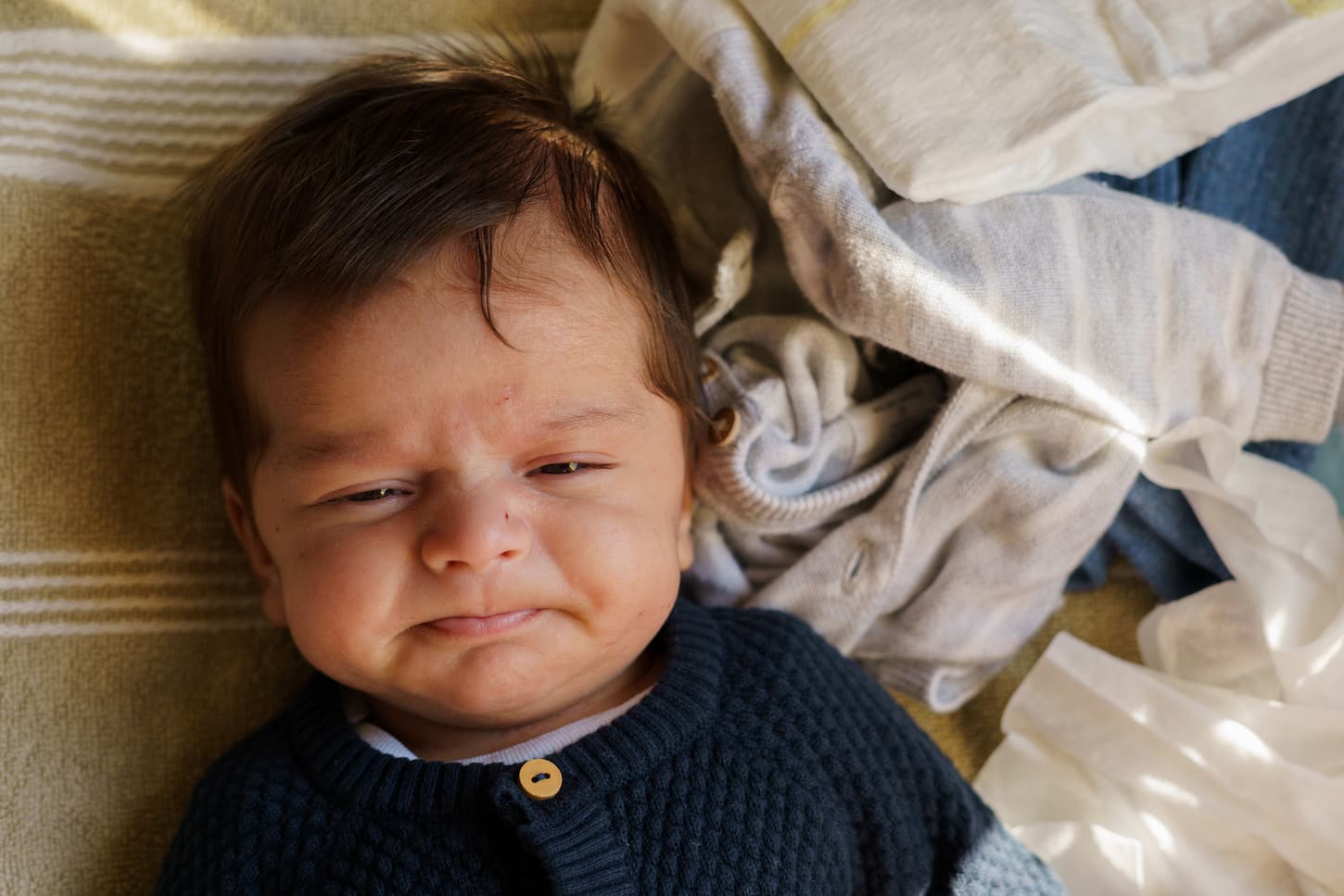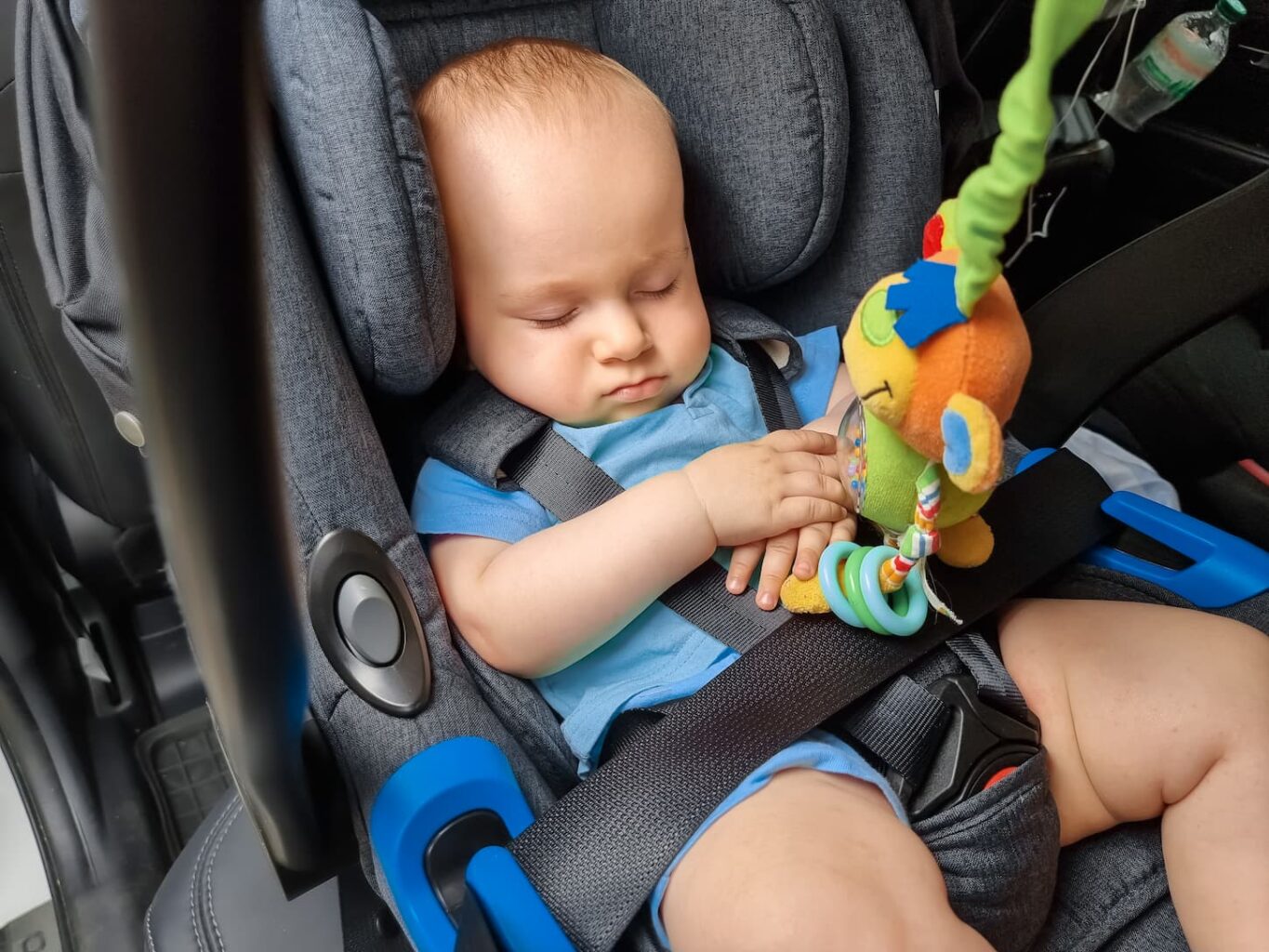You’ve spent countless hours researching the best sleep-training method and tirelessly implementing it. It was an exhausting experience until you began to see results. All was well for a few weeks until your baby decided to forget weeks of training and disrupt your blissful sleep again. This brings the question, do sleep-trained babies regress?
Sleep-trained babies can regress and have times where they don’t sleep well or for as long. This can happen with developmental milestones or when there are significant changes in the schedule. However, not all babies regress, and there are a lot of factors that impact their sleep.
Read below to learn why sleep-trained babies may still have a regression, why the sleep training method you used stopped working and how to get back on track.

When Sleep-Trained Babies Have a Regression
Sleep regressions are a normal occurrence and can happen due to your baby’s natural growth, hitting developmental milestones, schedule changes, and changes in the environment. They frequently happen at 4 months of age, 11 months old, and may happen at other ages.
It’s important to emphasize from the very beginning that sleep regressions happen in one way or another to every child. Don’t panic or feel disappointed that you have not done enough to train them well enough.
Babies don’t come fully prepared to deal with the outside world and optimally function, which means they require external assistance. If you can see your baby crawling around or biting on whatever it can get its hands on, that shows a keen curiosity for the world and a natural need to adapt to the world. Similarly, a baby’s internal systems are far from optimized in the first few months.
When it comes to regressions, it’s precisely the insufficient or inconsistent release of melatonin in the first few months of a baby’s life that can be an obstacle. Melatonin is a hormone that’s released to signal to your body the need to sleep and smoothly guide it towards a restful state.
Depending on the phase with which babies grow, melatonin can be all over the place until the 10th to 15th week after birth. Around the 15th week, the baby’s brain becomes more efficient at consistently producing melatonin, but it may take a few more weeks for the overall quantity of melatonin to be sufficient.
Therefore, this is why so many babies hit a 4-month regression, as their brain is maturing with melatonin production and is settling into a more adult-like sleep pattern.
A constant and sufficient quantity of melatonin is essential for your baby’s consistent and high-quality sleep patterns through the night and even for the naps during the day.
Sleep training usually happens after the baby is four months old since night feeding is no longer necessary, and the baby has more mobility and freedom to calm itself if it happens to get anxious.
Even if melatonin levels become consistent around the same time, now you can see how the insufficient production of this vital hormone can cause sudden disruptions weeks after you’ve completed sleep training.
The Four-Month Sleep Regression
The brain’s maturity at four months makes babies finally able to have a more adult-like sleep pattern, while they are also more aware of the world and, consequently, more likely to get anxious or stressed.
On average, at four months, your baby’s brain will begin to mature at a much higher rate, which gives babies their first glimpse of awareness of the external world. This is when their brain’s matured enough to begin settling into an adult-like sleep pattern. This doesn’t mean they sleep like adults, just that they are finally becoming capable of such.
However, having finally finished that fourth trimester of development also means they’re more aware. Being more aware of the external world means disruptions in the environment, or even becoming scared or anxious for no apparent reason can lead to disruptions in their sleeping cycle.
Consequently, at around four months and forward from that, babies can suddenly become very sensitive and much more reliant on assistance.
It’s also important to note that after four months of birth, the baby’s sleep cycle begins to form in a way that resembles that of adults. This means they are more likely to experience periods of shallow sleep or wake up between stages of the sleeping cycle.
For adults, it’s easy to shrug off randomly waking up throughout the night, or you don’t happen to realize it all together. For babies that are much more sensitive, even such slight disruptions can be enough to make them frightened or anxious about something.
Want to read more about the 4-month sleep regression? We’ve got you covered in this article: 25 Things To Know About the 4-Month Sleep Regression.
The Eleven-Month Sleep Regression
The eleven-month sleep regression can happen due to higher energy levels in children and a continuously increasing awareness of the world. It doesn’t happen in every child and may hit any time between 10 and 12 months of age. It may happen in tandem with hitting physical milestones like walking.
The growth of a baby’s mind is fascinating, and it’s important to note that it doesn’t happen in sudden leaps, instead, it’s a continuous process. The change in awareness comes after around four months into the baby’s life, but it becomes much stronger as they continue to mature.
With that in mind, it makes sense why your baby can experience sleep regressions even after the four-month sleep regression and months of sleep training.
Another factor to consider is how babies are also maturing physically during that period. The growth in their body is accompanied by higher energy levels, making them very restless. Furthermore, the brain development that comes on par with physical growth means they are more mobile and can better coordinate their bodies and move around.
All of this is a recipe for much excitement for the baby, but you can see how that can disrupt their nap cycles and even their nighttime sleeping patterns since they become more resistant to sleep.
Here’s more reading on our site about the 11-month-old sleep regression: 30 Things To Know About Sleep Regression at 11 Months.

Does Sleep Training Stop Working?
While it may appear that sleep training stops working since sleep regressions can happen to all children, remember that sleep training will help children get back to sleep by focusing on sleep hygiene. When struggling, it’s vital to remain consistent and address the underlying problem.
If you think politics is a polarizing topic, you should see the heated topics around which sleep training method is the best. Each one comes with its benefits and downsides, and it’s a massive pressure to pick.
It’s crucial to pick the sleep training method that best fits the lifestyle you and your partner have and the one that you have observed your baby reacts best to. It’s equally important not to fall into panic if it suddenly stops working, very likely, it’s not the method’s fault but another unrelated reason.
The list of what can cause a sleep regression and make it seem as though the method is not working is nearly endless. The usual periods where hardships related to sleep happen were already discussed, but many other instances are more personal to the child’s health, temperament, and environment that can cause sleep regressions.
Babies are sensitive creatures, and even though it may not seem like it, they can spot changes in the environment well. Moving to a new room or a new place altogether, bringing new people around, or getting a new pet are all potential disruptions that seem minor to you but are not for the baby.
When it comes to the baby’s physical and mental state, teething and sickness are just some of the conditions that can interrupt the effectiveness of sleep training.
Why Is My Sleep-trained Baby Crying Again?
Babies are sensitive creatures, especially when physical and mental state changes can be very rapid, leaving them unable to react properly. When they can’t communicate like an adult and cannot realize what’s going on, they cry to attract your attention and ask for help.
Your baby is crying even after being sleep trained because of its sensitivity to changes, making it more prone to get anxious or frightened.
Or your baby just need their diaper changed. Or maybe they’re hungry. There are a ton of reasons why babies cry.
Sometimes it’s not even a change in the external environment that has made them anxious but loneliness and a need for intimacy due to their heightened sensitivity and inability to properly regulate their emotions.
No matter what the reason for crying is, if this happens during a time when they are supposed to be sleeping, then use the following strategy.
When you hear your baby cry, go in the room and see what may be wrong while working to address it. Maybe they got frightened by something, need to be hydrated, or are sick and need to be given their medication.
Keep the child awake while you figure out the cause for crying and do what’s necessary to lessen or remove their pain and then put them back to sleep. The baby needs to fall asleep unassisted to get used to sleeping independently.
Is your baby crying during nighttime checks? Read this article we wrote on what to do!
How To Get Your Baby Back on Track After Sleep Regression
Getting your baby back on track requires you to address the underlying reason for the disruption and to begin to apply the sleep training method again consistently. Focus on healthy sleep habits over time, though some cases may need more immediate resolutions.
It’s vital to understand that if the sleeping method is not effective for your child, it won’t work. If the sleeping method is compatible with the needs of you, your partner, and your child and produces positive results, then any interruption has an external cause.
You should be mindful of how your baby is feeling, especially if it’s hard for them to communicate. You should also observe any recent changes in the environment or potential causes for sleep disruptions.
Getting back on track is not only about resolving the underlying issue, but it’s also about having the right mindset. You should not panic or feel guilt or shame that you may have chosen the wrong method. This is a decision that you are your partner have thought through.
You should treat yourself with self-compassion and commit to being consistent once you resume training. Your baby can only learn to sleep independently and consistently if you are equally committed to putting in the effort throughout the process. People in general, but especially babies, can quickly form habits if they are trained consistently.

Key Takeaways and Next Steps
Sleep regressions are an inevitable hardship that you and your baby will have to endure. It’s important to observe the underlying reason and not to get discouraged once you resume sleep training if you want to see results.
To help you out, though, make sure you read these additional resources we’ve got for parents in your same boat.
Resources
Learning about parenting or sleep training techniques is important to learn from various reputable sources. These are the sources used in this article and our research to be more informed as parents.
- Willes, Natalie. “Are Sleep Regressions Real?” The Baby Sleep Trainer, 16 Feb. 2022, www.babysleeptrainer.com/are-sleep-regressions-real/.
- D J Kennaway 1, G E Stamp, F C Goble, “Development of melatonin production in infants and the impact of prematurity”, https://pubmed.ncbi.nlm.nih.gov/1639937/.
